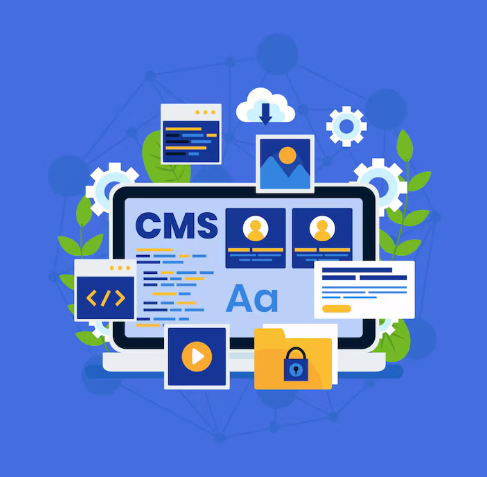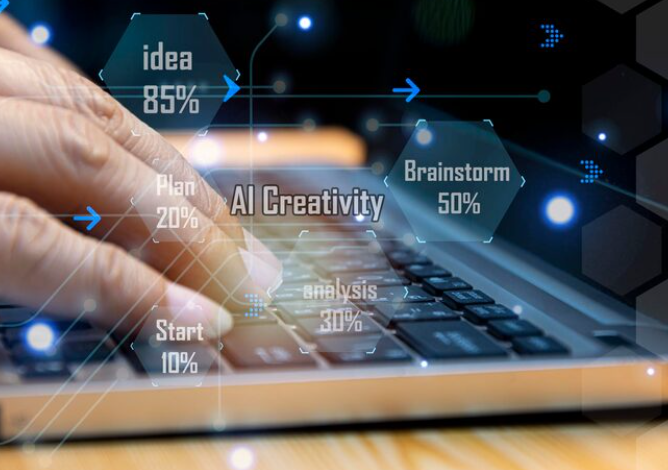The world of content management is rapidly changing. For years, Content Management Systems (CMS) like WordPress, Drupal, Joomla, and enterprise solutions such as Adobe Experience Manager have powered websites across industries. However, as digital experiences become more personalized and businesses demand speed, scalability, and efficiency, the role of traditional CMS platforms is evolving.
By 2025, AI-driven CMS and automation will dominate the landscape. From smart content recommendations and automated publishing to voice-enabled content creation and real-time personalization, the CMS of the future will be intelligent, agile, and highly adaptive.
In this article, we’ll explore the key AI-driven CMS trends for 2025, with a strong focus on AI-powered systems and automation. We’ll cover how they’re transforming content creation, delivery, and management—and what businesses need to do to stay competitive.
Why AI and Automation in CMS Are Essential for 2025
Modern businesses operate in a fast-paced digital economy where content is king. However:
- Customers expect personalized experiences in real time.
- Content teams are overwhelmed with manual workflows and repetitive tasks.
- Enterprises need scalability as websites evolve into omnichannel ecosystems.
AI and automation bring solutions:
- AI-powered personalization ensures users see relevant content.
- Automation tools reduce manual workloads, increasing efficiency.
- Predictive analytics help businesses forecast user needs.
By 2025, AI and automation will no longer be optional add-ons; they will be core features of every CMS.
Key CMS Trends for 2025: AI and Automation in Action

1. AI-Powered Personalization
Personalization is moving beyond basic “recommended for you” features. In 2025, AI-driven AI-driven CMS platforms will:
- Analyze user behavior in real time.
- Deliver personalized landing pages, blog posts, and product recommendations.
- Adjust website layouts dynamically based on individual preferences.
For example, a AI-driven CMS powered by AI could automatically highlight different content for a new visitor vs. a returning customer, improving engagement and conversions.
2. Automated Content Creation with Generative AI
The rise of large language models (LLMs) and AI-powered tools has changed how content is created. By 2025, AI-driven CMS platforms will integrate AI to:
- Generate blog drafts, product descriptions, and social media posts.
- Create variations of content for different platforms (web, mobile, social).
- Suggest SEO-optimized keywords and titles automatically.
Instead of starting from scratch, content teams will collaborate with AI to co-create high-quality content faster.
3. Workflow Automation in CMS
Managing a content pipeline involves multiple steps: writing, reviewing, publishing, updating, and archiving. In 2025:
- AI-driven workflow automation will handle repetitive tasks.
- CMS platforms will auto-schedule posts for peak engagement times.
- Outdated content will be flagged or updated automatically.
This will save organizations hours of manual work and improve overall efficiency.
4. AI-Powered SEO Optimization
Search engine optimization (SEO) is critical for visibility. Future AI-driven CMS systems will have AI SEO assistants built-in, capable of:
- Recommending keywords based on search intent.
- Suggesting metadata and structured schema.
- Predicting how a piece of content will rank before it’s published.
By 2025, AI SEO tools will become an integral part of AI-driven CMS dashboards, making optimization seamless.
5. Voice and Conversational Content Management
With voice search and smart assistants becoming mainstream, AI-driven CMS will adapt to voice-first experiences.
- Voice-based content creation (speak to create posts).
- Automatic transcription and translation for global audiences.
- Voice-optimized content delivery across devices.
This trend will push businesses to embrace multimodal content strategies.
6. AI for Multilingual and Global CMS
Global enterprises need to publish content in multiple languages. In 2025, AI-driven CMS will:
- Use real-time translation engines to generate multilingual versions.
- Maintain brand consistency across languages.
- Automate cultural adaptations (currency, local examples, tone).
This makes scaling globally faster and more cost-effective.
7. Predictive Analytics and Data-Driven Insights
AI-driven CMS platforms will move from reactive reporting to predictive analytics.
- Content managers will know what users are likely to search for next.
- AI will forecast trending topics within industries.
- CMS dashboards will provide actionable insights for decision-making.
This allows businesses to stay ahead of user needs instead of catching up.
8. Security and Fraud Detection with AI
CMS platforms are prime targets for cyberattacks. By 2025, AI will strengthen CMS security through:
- Real-time detection of suspicious activities.
- Automated vulnerability patching.
- Fraud detection for e-commerce CMS (fake reviews, payment fraud).
AI-powered cybersecurity will make CMS platforms smarter and safer.
9. Headless CMS + AI Integration
Headless CMS architectures separate content management from delivery, making it easier to scale across web, mobile, IoT, and AR/VR. In 2025:
- AI will automate API-based delivery across platforms.
- Content will be optimized automatically for different devices.
- Businesses can manage omnichannel experiences effortlessly.
This combination of headless CMS + AI will dominate enterprise solutions.
10. Automation in Marketing and Commerce
AI-driven CMS will connect with marketing tools to automate:
- Personalized email campaigns.
- Dynamic pricing for e-commerce.
- Retargeting strategies based on user behavior.
The CMS will no longer just manage content—it will also drive business growth.
Benefits of AI-Driven CMS and Automation
By 2025, businesses adopting AI-powered CMS will enjoy:
- Faster content creation with reduced manual effort.
- Higher engagement through personalization.
- Improved SEO with real-time optimization.
- Better scalability with automated workflows.
- Increased security with AI-powered monitoring.
- Stronger ROI from data-driven content strategies.
Challenges Ahead
Despite its benefits, AI-driven CMS and automation come with challenges:
- Over-reliance on AI – Risk of generic content without human creativity.
- Integration issues – Legacy CMS platforms may struggle with AI adoption.
- Data privacy – AI personalization requires careful handling of user data.
- Training requirements – Content teams must learn to work with AI effectively.
Businesses that overcome these hurdles will stay ahead in 2025.
What Businesses Should Do to Prepare for 2025
- Adopt AI-ready CMS platforms that integrate with automation tools.
- Train teams to collaborate with AI instead of fearing replacement.
- Focus on user-centric content strategies with personalization.
- Invest in data security and compliance for AI-driven personalization.
- Experiment with headless CMS + AI for omnichannel experiences.
Final Thoughts
By 2025, the CMS landscape will be defined by AI and automation. Businesses that still rely on manual, outdated CMS workflows will fall behind, while those embracing AI-driven CMS will deliver personalized, scalable, and secure digital experiences.
The future of CMS is not just about managing content—it’s about managing intelligent digital experiences. With AI at the core, CMS platforms will transform into automated growth engines for businesses worldwide.

